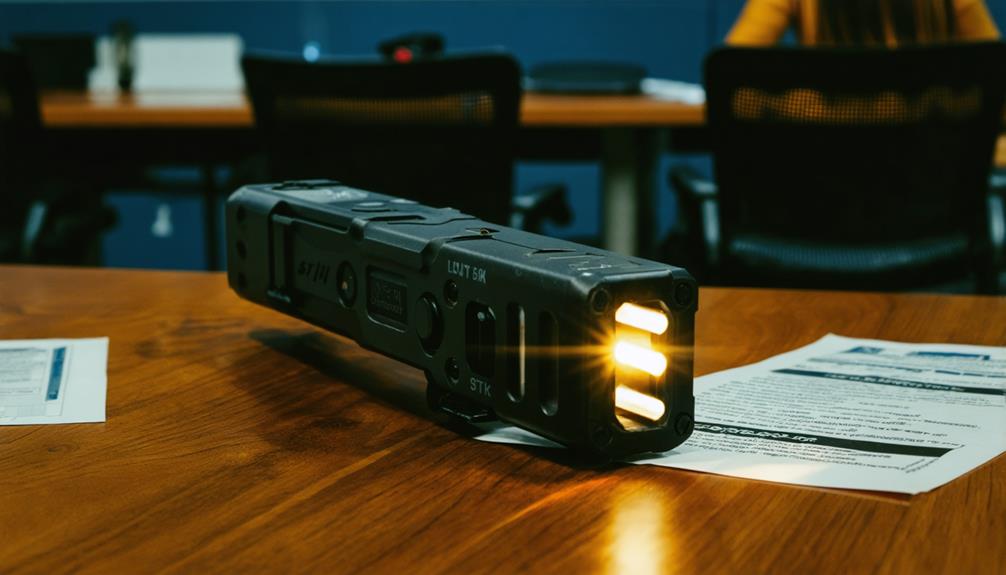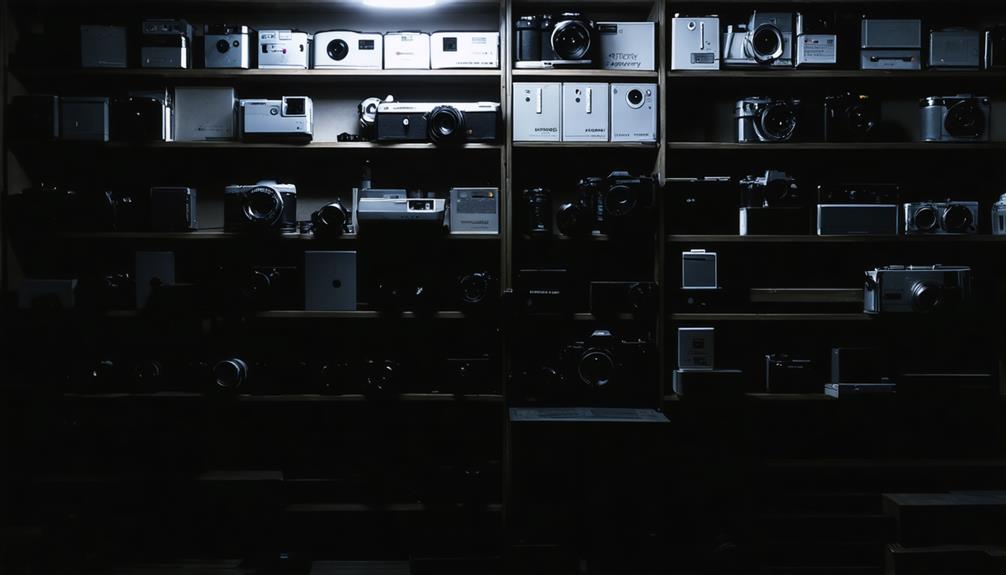
Brainstorm Security Shop

For Orders Over $99

On Any Of Our Products

Details On Refund Page

In the rapidly evolving landscape of surveillance technology, the wholesale purchase of spy cameras emerges as a strategic advantage for retailers aiming to thrive in a competitive market. Bulk acquisitions of spy cameras wholesale not only enhance profit margins but also fortify inventory management, aligning with fluctuating consumer demands. However, beyond mere cost efficiencies, what pivotal considerations must businesses keep in mind when selecting suppliers such as Hikvision or Dahua Technology? Furthermore, how do legal and ethical concerns intersect with the increasing sophistication of these devices? The answers to these questions could redefine how retailers navigate the spy camera sector.
When considering the procurement of spy cameras, purchasing spy cameras wholesale offers significant advantages that can benefit businesses and retailers alike. One of the primary benefits is cost savings, which is a crucial factor for any business aiming to maximize profit margins. By engaging in bulk purchasing, businesses can negotiate lower prices per unit, thereby reducing the overall cost compared to buying individual units. This reduction in procurement costs allows retailers to offer competitive pricing to their customers, ultimately enhancing their market position.
Moreover, wholesale purchasing provides businesses with the opportunity to manage their inventory more efficiently. By securing a large quantity of spy cameras at once, retailers can ensure a steady supply of stock, reducing the risk of shortages and ensuring that they can meet customer demand promptly. This approach not only minimizes logistical challenges but also contributes to better cash flow management by reducing frequent shipping costs associated with smaller, more frequent orders.
In addition, purchasing wholesale often opens up avenues for establishing strong relationships with suppliers. These relationships can lead to further benefits in the form of exclusive deals, early access to new products, and enhanced customer support, all of which are critical for sustaining a competitive advantage in the market.
Beyond the numerous advantages of wholesale purchasing, understanding the key features of spy cameras is paramount for making informed procurement decisions. When selecting spy cameras, one must prioritize image resolution, as it directly influences the clarity and detail of the captured footage. High-definition options ensure that even minute details are discernible, crucial for surveillance activities. Additionally, motion detection is a pivotal feature, enabling cameras to activate recording only when movement is detected. This not only conserves storage space but also makes reviewing footage more efficient by minimizing irrelevant recordings.
Considering these features holistically is essential, as they significantly impact both the effectiveness and cost-efficiency of the surveillance system. Below is a table summarizing key features to consider:
| Feature | Importance |
|---|---|
| Image Resolution | Determines clarity and detail of footage |
| Motion Detection | Activates recording upon detecting movement |
| Battery Life | Affects the duration of continuous operation |
| Connectivity | Enables remote access and monitoring capabilities |
| Size and Design | Influences the discreetness of the camera deployment |
Investing in spy cameras with these features ensures that organizations not only meet their surveillance objectives but also achieve optimal value from their wholesale purchases.
In the competitive landscape of surveillance technology, identifying the top suppliers of spy cameras is crucial for organizations seeking reliable and cutting-edge solutions. A thorough supplier comparison and market analysis reveal the leading players who consistently deliver high-quality products and innovative features.
Careful selection is vital to ensure the best fit for specific surveillance needs.
These suppliers set industry standards and provide organizations with a range of options for their surveillance needs.
Navigating the legal and ethical landscape of spy camera usage is akin to traversing a complex maze, with numerous regulations and moral considerations guiding the path. As the deployment of surveillance technology becomes more pervasive, understanding privacy rights and surveillance ethics is crucial for both individuals and businesses.
Legally, the use of spy cameras must comply with local, national, and international privacy laws, which vary significantly across jurisdictions. For instance, some regions require consent from all parties involved in the recording, while others permit one-party consent. Violating these laws can lead to severe penalties, including fines and imprisonment.
Ethically, the deployment of surveillance technology raises questions about the balance between security and privacy. Surveillance ethics demand that the use of spy cameras should respect individual privacy rights and be justified by a legitimate need. The ethical considerations also involve transparency, ensuring that individuals are aware of being monitored unless there is a compelling reason for covert surveillance.
Moreover, businesses must consider the potential impact on trust and reputation, as misuse of surveillance can lead to public backlash. Thus, a thorough understanding of both legal obligations and ethical responsibilities is essential for the responsible use of spy cameras.
Spy cameras, once bulky and conspicuous, have evolved into sophisticated devices that blend seamlessly into everyday objects. This evolution is largely driven by miniaturization advancements, allowing cameras to fit into the smallest of spaces without sacrificing functionality.
Modern spy cameras are now embedded in pens, clocks, and even eyeglasses, making them nearly undetectable.
A significant trend in spy camera technology is the integration of artificial intelligence (AI), which enhances their capability and functionality. AI integration allows these cameras to perform tasks such as facial recognition, motion detection, and real-time analysis. This not only improves the efficiency of surveillance but also enables smarter data processing and storage.
Recent trends in spy camera technology include:
These trends reflect a growing demand for discreet, efficient, and intelligent surveillance solutions, shaping the future of spy camera technology in intriguing ways.
Spy cameras are predominantly utilized for home security, child monitoring, and employee surveillance. Additionally, they serve purposes in wildlife observation, evidence gathering, and vehicle tracking, providing discreet solutions for various surveillance and monitoring needs.
When selecting between wired and wireless spy cameras, consider wired advantages such as consistent power supply and stable connection. In contrast, wireless flexibility offers ease of installation and discreet placement options, ideal for varied surveillance environments.
Yes, spy cameras can be integrated with smart home systems. However, privacy concerns must be addressed. Ensure secure network settings and follow installation tips for optimal performance while safeguarding personal data and maintaining user privacy within the system.
The average lifespan of a spy camera typically ranges from 1 to 5 years, contingent upon spy camera features such as battery life and build quality. Different spy camera types may exhibit varying durability and longevity in operational effectiveness.
Spy cameras require regular maintenance to ensure optimal performance. Key maintenance includes following installation tips and addressing troubleshooting issues promptly. Regular cleaning and firmware updates can extend their lifespan and improve functionality, ensuring reliable surveillance capabilities over time.
Brainstorm Security Shop
1867 Caravan Trail
Ste 105
Jacksonville, FL 32216
Call us toll free: (800) 859-5566